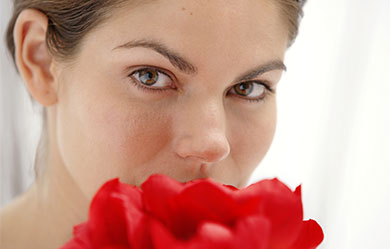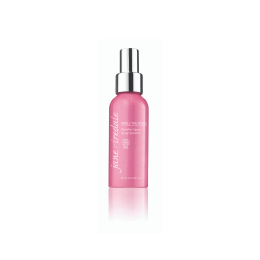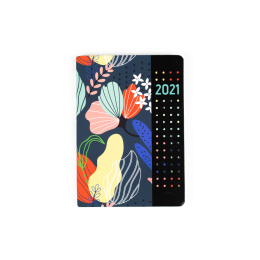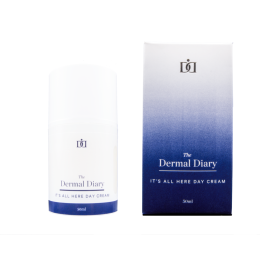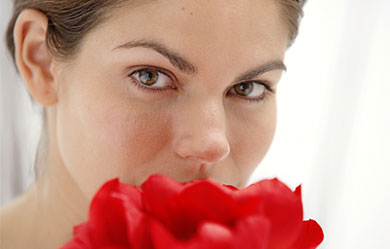
As you will have read in the current issue of Spa Australasia magazine, we are soon to enter a new age as SPA+CLINIC, due out very soon.
This is to reflect what the word ‘spa’ means in today’s world, with the revolution in results-based technology.
But while we have the means to inject and laser away a client’s lines, wrinkles and tweak other aspects of the appearance they wish changed, it’s essential not to let go of the fundamental and traditional principles of the spa experience. Aromatherapy is one such modality. Here aromatherapy expert Michelle Reeve* explains.
People interact with the world differently. Some people are auditory. Some need visual cues to connect with concepts and ideas. Others are kinetic, relying on tactile sensations to learn and communicate. Most of us are a mix.
I see the world through aroma, a keen and enthusiastic sense of smell. Every aromatic scent I inhale is steeped in a palette of colour, formed by depth and dimension. It has shaped how I fall in love, how I cook and when I create. It’s been like this for as long as I can remember.
I perceive my environment along with the people and experiences in it through every life filled breath. It’s the foundation of my strongest memories, sets my mood and provides endless creative inspiration.
I’ve always been intrigued by the mystical allure of essential oils. Entwined through a corporate career was an ever-present interest in health through aromatic oils and infusions.
it’s no great surprise, then, that the field of aromatherapy finally found me, ignited my passion and captured my heart. Fifteen years later I’m still blessed with work that I find so incredibly tantalising. Aroma is my constant comfort, companion and counterpoint.
Interestingly, most people think that its sight or sound that are the stronger senses; that ongoing hypothetical conversation we have about which sense you could never live without. But in fact it’s olfaction, our sense of smell, which dominates impacting our every day decisions, even those we’re not consciously aware of.
The gift of smell also has a gender bias. Women have a more attuned and sensitive nose, probably explaining much of what is credited to intuition. Smell governs our primal urges linking into the most primitive part of our brain stem.
So while the effects of essential oils can feel somewhat esoteric, there is strong science standing behind their benefits on not only soothing or stimulating our emotions but the very real impact they have on influencing our body chemistry.
Before I go on let’s first take a quick look at the physiology of olfaction. How exactly does our sense of smell work? When an odour, a cluster of airborne chemical molecules, enters the nose it’s captured in the mucous membranes located about 7cm along the nasal cavity.
This area is only about the size of a five cent piece and houses around 10 million olfactory cells. Each of these cells contains around 350 hair-like receptors which catch odour-detecting signals. Once information about the smell is collected they transfer this data as an electrical signal into the brain for processing.
Through olfaction we can recognise around 10,000 individual smells. The areas that the brain uses to compute these smells are located in the most primal parts of our brain stem:
- The hypothalamus, which regulates the nervous system and is responsible for those automated nervous impulses (hunger, sleep, heart rate, etc); and
- The hippocampus, which houses the limbic system; the part of the brain in charge of memory, learning and emotions.
By smelling an odour we send ripples through so many of our physiological pathways impacting so many of our anatomical systems. Inhaling essential oils can influence measurable changes in indicators like heart rate, adrenaline levels and blood pressure.
Because the location of our olfactory bulb is linked so deeply to our brain stem the effect it has on our nervous system is significant, yet regularly overlooked, undervalued or even worse dismissed completely.
The hypothalamus directs our autonomic nervous system. This is the area that regulates our sympathetic responses of ‘fight or flight’ including increased heart rate, elevated stress hormones and depressed immune function.
All of the physiological changes necessary to prepare the body to defend itself when confronted with the stress of survival. In contrast our parasympathetic nervous responses of ‘rest and digest’ are our body’s rejuvenation mode for healing and repair, generally working best when we are relaxed or asleep.
When we inhale an aromatic essential oil through our sense of olfaction we activate our autonomic nervous system and prime our ‘rest and digest’ function. Oils like lavender, rose and patchouli trigger our parasympathetic responses. When inhaled they measurably lower our stress hormones, boost immune function, aid digestion, regulate fertility and enhance regeneration and repair responses.
This isn’t just fluffy mumbo jumbo. Scientific research has confirmed that our stress hormone cortisol can be lowered by up to 30 percent by simply inhaling lavender essential oil for around an hour. Pretty powerful stuff!
Considering the amount of uninterrupted daily stress in our Western lifestyles, it’s no surprise we spend huge chunks of time responding to immune-depressing sympathetic stimulus. Imagine the impact that has on long term disease and our health over the years. Consider the effect over a lifetime.
Wouldn’t it be marvellous if we could honour our health with small daily rituals that coaxed our body into the parasympathetic mode of rejuvenation and regeneration? If during your GP visit the doctor encouraged you to combat stress by simply ‘reaching for the bottle’ ‘ just so long as the label says Lavender!
As we move into an era of empowered health, the spa-wellness landscape is embracing aromatic essential oils to not only regenerate the skin but also induce deep relaxation while managing stress.
Through the use of aromatic therapies we can enhance our immune system and delay the effects of disease and poor health. Lifestyle indicators including improved sleep, mood elevation, minimising depression, enhancing sexuality, self image and social relationships are all happy beneficiaries.
So it seems that the best thing you could potentially be doing for your health today is to really just stop and smell those roses.
* Michelle Reeve is the founder and managing director of leading spa wellness brand Waterlily Australasia, encompassing more then 150 professional skin, body and spa rituals. Michelle is an expert in a range of natural medicine modalities but it is her extensive experience in aromatherapy that inspires and drives her passion to continue to deliver true active ‘aromaceutical’ solutions for spas.
waterlilyskinbodyspa.com.au

